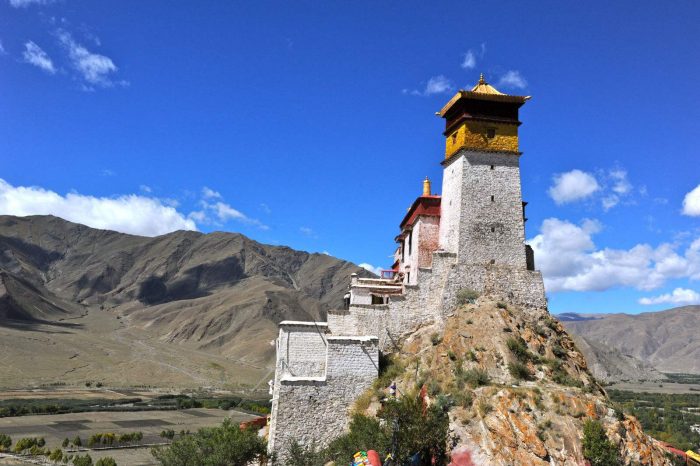More Information
[email protected]
+86 28 8503 0959
Mon - Fri 9.00 - 18.00
Mt. Everest, Qomolangma Hiking Trekking Climbing Mountaineering Travel Tour
Introduction of Mt. Everest, Qomolangma
Mt. Everest/Qomolangma is shortly called Mount Qo, and is liberally translated in to Mount Madonna. Called Mount Sagarmāthā by Nepal, also known as “Everest”, Qomolangma is located at the Himalayas, the borders of the People’s Republic of China and Nepal, all year covered by snow. With the altitude of 8844.43 meters, Qomolangma is one of the most gorgeous and the most astonishing Top 10 Mountains in China and regarded as the highest mountain in the world.
Climate Condition of Mt. Everest, Qomolangma
The climate near Everest area is very changeable, usually unpredictable in a day, not to mention the changing weather of four seasons in a year. Each year the period from early June to mid-September is the rainy season, with the bad weather of frequent heavy rainfall, hazy fog and snow-storm caused by the strong southeast monsoon. In mid-November and mid-February next year, due to the influence of strong northwest cold, the temperature can reach -60 ℃ and the average temperature between -50 ℃ -40 ℃.The maximum wind speed is 90m / sec. The period from early March to late May each year, here it is spring transiting from wind season to rainy season, while the autumn is from the beginning of September to the end of October, transiting from rainy season over to wind season. During this period, there may be good weather, so it is the best season for climbing. Because of the extreme cold weather, Qomolangma is also known as the world’s third pole.
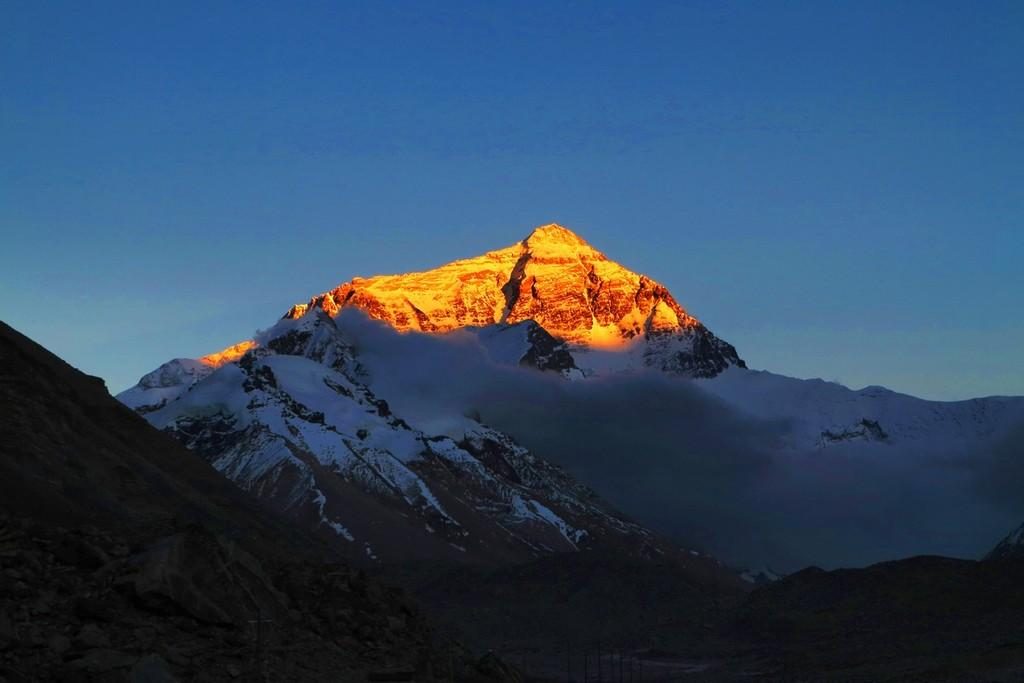
Climbing Route of Mt. Everest, Qomolangma
The route from mainland China: tourists can take a bus along Lhasa-Nepal Highway, passing by the Sheep Lake, Gyantse, Shigatse, Xegar, Rongbuk, Everest, Shigatse, Nyêmo County, Qushui County, Lhasa, totaling 670 km for two days, and then go southward by Pago Zhuo area along the rough road. After driving 110 km, tourists reach the foot of northern Everest Mountain, Rongbuk, which is located at the end of the Rongbuk Glacier.
Qomolangma is at the border of the south, 100 km from Lhasa-Nepal Highway. From Shigatse and Lazi to New Tingri it is easy to hitch a ride. However, there are few possibilities to hitch a ride from the rest of the 100 km from the Camp Site, so we recommend you to charter a car from Lhasa.
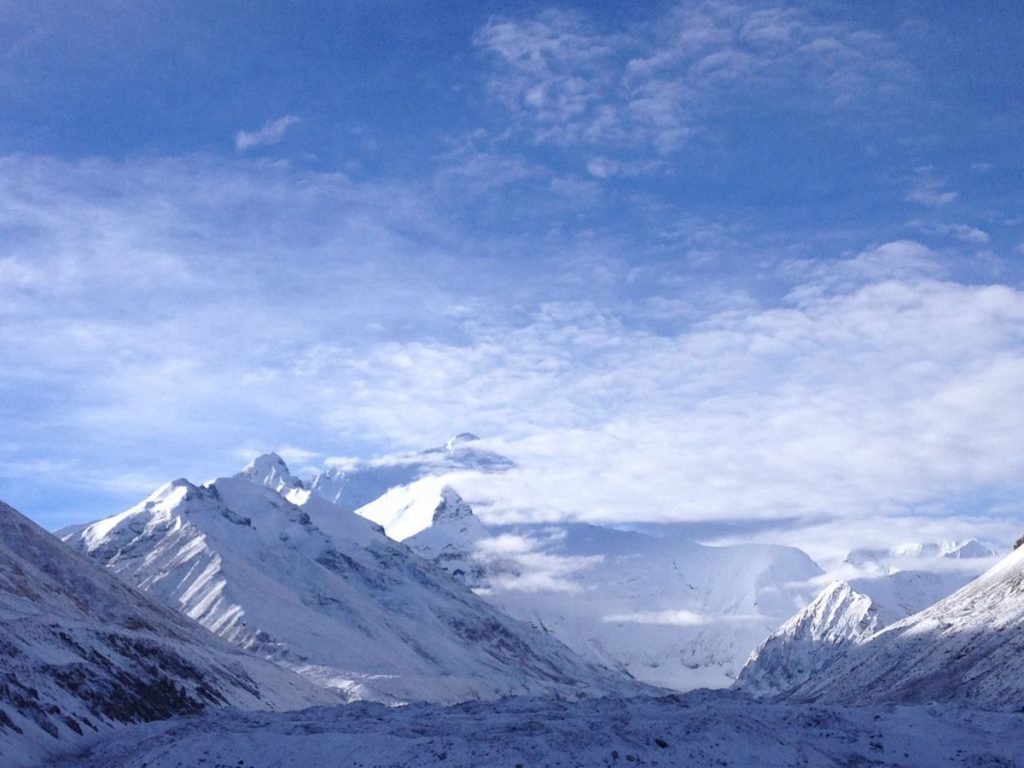
Climbing History of Mt. Everest, Qomolangma
The climbing activities of Qomolangma originated from last early century, and the first climbing finished by the UK climbing team in 1921, but they did not succeed when trying to climb from Tibet, at the northern slope of Qomolangma for 8 times until 1938.
During the period from 1939 to 1946, due to the World War II, all the hiking and climbing to Himalayas had been suspended.
After 1947, climbing activities in Asian highland area started over. During the 28 years from 1947 to 1975, there were 11 times of success among too many climbing activities by athletes from around the world. On the peak of Qomolangma, 51 climbers both male and female from 8 countries in total have left their footprints, from which, China occupying 12 athletes including one female athlete, has the largest number of climbers reaching the peak of Qomolangma.
Over the past half centuries, many climbing teams from many countries have succeeded in climbing to the peak of Qomolangma.
-
DepartureLhasa
-
Departure Timeconfirmed with travel adviser
-
Return Timeconfirmed with travel adviser
-
IncludedDomestic airfares, TrainsHotel accommodation with breakfastsMeals mentioned in the itineraryProfessional English-speaking guidesDrivers & air-conditioned vehiclesEntrance fees to tourist sites
-
Not IncludedInternational airfaresEntry Visa feesPersonal expensesTips or gratuities for guides and drivers
Similar Tours
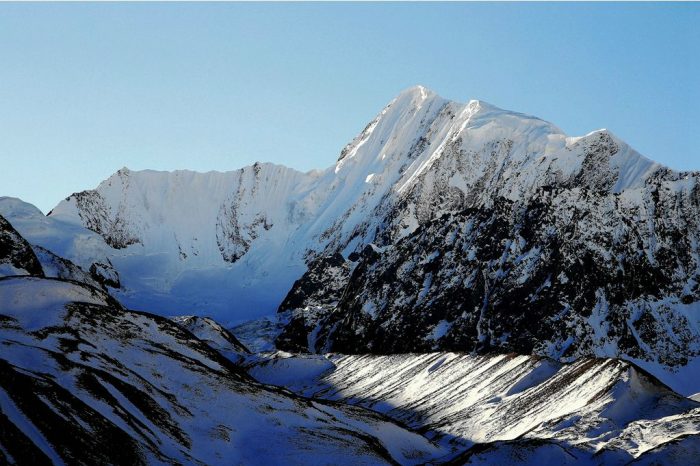
Mount Leduomanyin Hiking Trekking Climbing Mountaineering Travel Tour
The glacier lake which sits beneath Mt. Riwuqie Feng and Mt. Leduomanyin is beautiful
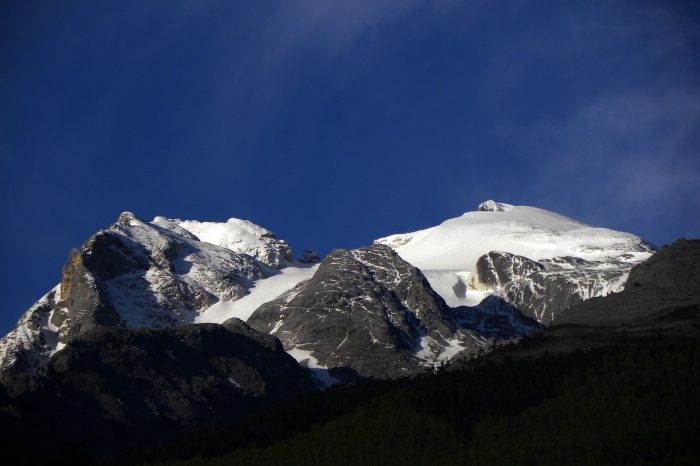
Haba Snow Mountain Hiking Trekking Climbing Mountaineering Travel Tour
trekking & hiking in yunnan province


